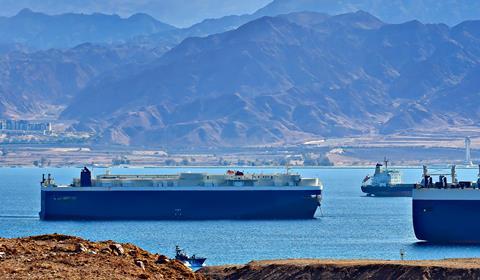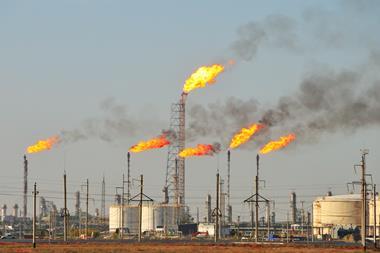Disruptions to Red Sea cargo shipping, caused by ongoing attacks by Houthis in Yemen continue to significantly affect the chemicals industry, especially in Europe and Asia, according to Al Greenwood, a chemicals expert and deputy editor for the energy and chemicals consulting firm ICIS. The impact has been less in the US because American exporters can ship chemicals and other goods on easier alternative routes that avoid the Red Sea, he explains.

For Europe, and especially Asia, there has been what Greenwood describes as ‘a mini Covid’ effect as Asian producers contend with the significantly longer and more expensive shipping route from Asia to Europe, around the Cape of Good Hope on the southern tip of Africa instead of through the Red Sea and the Suez canal. This has reduced shipping capacity, as tankers and container ships are spending more time on the water.
At the same time, there is increased demand for shipping ahead of the introduction of new trade tariffs. In recent months, Chinese exporters had been front-loading shipments to get ahead of EU tariffs on electric vehicles imported from China initiated on 4 July, according to Greenwood. This frontloading has been exacerbated, he says, in anticipation of additional US tariffs on Chinese electric vehicles and batteries that are set to come into force on 1 August.
‘Add that to the economic recovery in Asia and you get an ugly picture,’ Greenwood tells Chemistry World. He says Asian ports are being overwhelmed with congestion as container cargoes pile up. Because of the shortage in container vessels and resultant decreased shipping capacity, some importers in India, Turkey and Europe have shifted to breakbulk vessels, which ship goods without the use of containers. That makes loading and unloading shipments more cumbersome and time-consuming. In South Korea, he notes, high freight prices have led to shipments of polymer materials being cancelled.
Reshoring in Europe
Meanwhile, high shipping costs have made local producers in Europe more competitive with imports from Asia. ‘If the material is available, we’ve seen companies turn to European producers, and that’s giving some chemical producers in Europe a break,’ Greenwood continues.
LyondellBasell – one of Europe’s largest polymer producers – noted in an April earnings announcement that in Europe, logistics disruptions in the Red Sea restricted competitive imports and led to increased volumes from the company’s local assets for olefins, polyethylene, polypropylene and propylene oxide and derivatives.
In the US, shipping had been further constrained by a drought limiting the number of vessels passing through the Panama canal. That situation appears to be resolving. The Panama Canal Authority is set to increase the number of daily slots for vessels transiting the Panama canal in August, as the drought conditions ease. That will relieve some stress.
It remains to be seen whether the changes that have occurred in global chemical industry supply chains will become semi-permanent or longer-term once operations through the Red Sea and the Panama canal are normalised.

















No comments yet